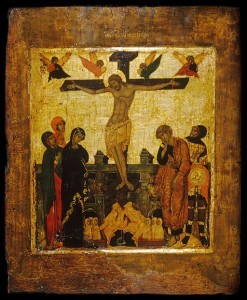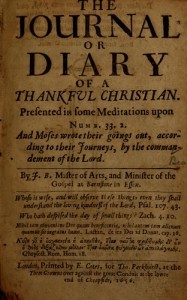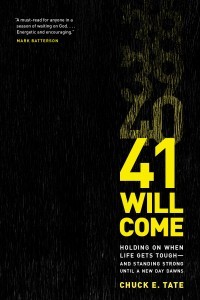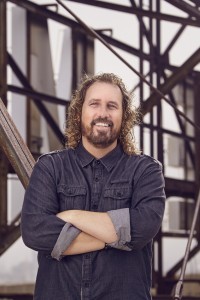Gary Neal Hansen's Blog, page 41
September 20, 2016
The Problem of Idleness (The Writer’s Inner Life)

 cc by kyle post 2.0
cc by kyle post 2.0As Mark Twain, allegedly said (but probably didn’t),
History doesn’t repeat itself — but it does rhyme.
(The funny bits all get attributed to the same famous guys. As Abraham Lincoln said,
The internet is being ruined by fake quotations.
That one has to be true. I have it on a bumper sticker.)
Fake quotation or not, the rhyming of history happens in the pig picture of movements and nations. It also happens in personal history, yours as well as mine.
We don’t face exactly the same challenges each time around, but they are similar.
We don’t respond in the very same ways, but you can see the same tendencies.
Our lives rhyme.
The Problem of Idleness
So today I have the same struggles as in the last few weeks, only with slight variations.
There are always demands and interruptions. Today one of my kids is home sick from school.
And there are always tendencies to lethargy and idleness — accidie as the monks called it.
Some days the problem of idleness comes from lack of a to do list. Some days the list is just too overwhelming.
Wanting the Step by Step Instructions
 I want to take my life to Google Maps and get step by step directions, plus a big picture view of the journey.
I want to take my life to Google Maps and get step by step directions, plus a big picture view of the journey.
Instead I have a zillion thoughts jumbling over each other.
So I sit there.
It can be a bit like one of Grimm’s fairy tails. I know where I want to get to — there is a castle out there, a treasure trove, or home. Something.
 But I’m on a trail in the woods. The trees are high all around me.
But I’m on a trail in the woods. The trees are high all around me.
Traveling into the night I lay down to sleep. I awaken at a crossroads: there are four paths to choose from.
There is the well-trodden path. Most people have gone there, so it’s a likely choice.
There is the road less travelled by. It might make all the difference.
Then there are two others. Equally inviting. Equally inscrutable.
Which one was I on, anyway?
If only I could climb to the top of the highest tree maybe I could see my destination and know which path to follow.
 Maybe this is Tolkein’s Hobbit rather than the Brothers Grimm. Whatever.
Maybe this is Tolkein’s Hobbit rather than the Brothers Grimm. Whatever.
But even if I can see the City of God as my final destination, Christ’s lips are sealed about that turn by turn thing.
Abba Poemen’s Advice
In these Monday posts I’ve been exploring the inner life of the writer by mining the sayings of the Desert Fathers, those 4th century Egyptian monks who scooted off to the desert to battle their demons and live a life of prayer.
This morning I came across one by Abba Poemen:
Poemen also said, ‘They smoke out bees in order to steal their honey. So idleness drives the fear of God from the soul, and steals its good works.’ (Self-Control, 32)
Idleness sounds passive, but to Poemen it is an active force. Idleness is like smoke blown into a hive to drive away the bees.
It is idleness itself, whoever sent it, that is keeping me from the God who calls me and the work to which I am called.
So this ancient monk with the odd name (I’ve always loved that name, actually) tells me that the solution is not seeing the big picture. He says I don’t need a turn-by-turn guide to the future.
It is not that some problem makes me idle.
Idleness is the problem. I just need to move.
This is an excellent spiritual counsel to me in favor of daily “free writing.”
When I don’t know which part of which project to tend to, I am idle. Get some words flowing onto the paper, any words, even the wrong words, and I’ll be moving.
Movement will take me into the work.
I’m like a truck idling in the parking lot, engine running. Or a boat sitting on a mud flat. I’m not moving. Only if I move, can I be moved and find my direction.
Finding a Lamp
 cc by Lisa.davis 2.0
cc by Lisa.davis 2.0Scripture has related counsel:
Thy Word is a lamp to my feet,
says the Psalmist. (Psalm 119:105, NRSV)
A lamp in biblical times was not a halogen headlight. There is no beam cast a mile down the road.
We are talking about a bowl of oil with a wick hanging out. A tiny little flame.
You could see clearly a foot, maybe two. Just enough to know where to put your foot next.
No turn by turn. No Big Picture map.
Just the next step. Just the next word, phrase, sentence.
Keep writing. Clarity and energy will both come.
————
I’d love to hear what gets you moving when you are stuck idling. Let me know in the comments.
If you enjoyed the post, please share it using the buttons below!
————
This post contains an affiliate link.
The post The Problem of Idleness (The Writer’s Inner Life) appeared first on Gary Neal Hansen.
September 16, 2016
Learning to Read All Over Again (Letters to a Young Pastor)

 Dear ______:
Dear ______:
It does sound like you are now in the thick of things in your new semester.
Glad to hear your new classes are exciting.
Sorry to hear that you are finding yourself overwhelmed with your reading assignments.
I remember one classmate who added up all the pages assigned for all his classes for the semester. Then he figured out how many pages per hour he was actually able to read.
A little math revealed two things.
The good news was that he actually could get all his assigned reading done during the semester.
The bad news was that he would not be allowed to sleep for the next four months. Or go to class. Or to the bathroom, I suspect.
Why do your professors assign so much reading?
You are in a similar situation. You could draw one of two conclusions.
Maybe each of your professors thinks that his or her class is the most important thing in your life, and that you should shift everything else to a lower priority.
Or, maybe your professors do not really expect you to read everything on the syllabus — at least not in exactly the same way.
There is a bit of truth in option one. Any good teacher gets excited about the material, and wants you to see it in as much depth as possible.
In my Church History survey courses, sometimes people complain that I try to include too much. I should stick to the high points, they say, and leave out all the unimportant bits.
They seem to assume that there could surely only be one easy semester’s worth of important things — in over 2000 years of growth and change.
I love this stuff. Every time I leave out a world-changing person or a crucial idea in the development of Christian teaching I feel I’m short changing my students.
But the real answer is #2: You have to learn to read in new ways. I don’t mean that you need to take a speed reading course — though it wouldn’t hurt you. I mean you need to change your definition of “reading” and hone a new set of skills.
What do you think “reading” means?
Most people emerge from high school, or even graduate from a university, with a simple and narrow definition of the word “reading.”
We think it only counts as reading if we start at the beginning, bring our eyes across each and every word, silently mouthing each one in turn in our minds. We have to do this on each and every line of each and every page, until we get to the end.
That’s what we learned back in first grade.
The problem? Graduate school is not first grade.
That form of reading is too slow to ever bring you to the finish line. Plus, using that method on meaty works and you’ll never actually find what you need in them.
I’d say you need to learn to practice three different forms of reading, at least two of which, to a lot of people, don’t even meet that traditional definition.
Think strategically about your reading assignments
Your goal with each book, chapter, or article should be to get from it what you need. When you have that you are done reading. It may take ten minutes or ten hours. It all depends on what you need.
The first thing to do is to figure out why the professor assigned that particular text. That will let you know how it fits into the class as a whole. That, in turn, can help you think strategically about how you will spend your time with that book to get what you need.
Any given reading assignment is likely to fall into one of four categories,
It may be intended to give you the big picture of the semester’s subject.
It may be intended to give snapshots of alternate points of view.
It may drill deeply into a topic for an in-class discussion or paper assignment.
It may be there for you to follow up with on your own if you happen to want to learn more.
Learning to read all over again — with a new definition
You need to approach each of these kinds of assignment differently. Do with them whatever it takes to get what you need from them. Call that “reading” and you are good to go.
Blessings,
Gary
————
I’d love to hear from you in the comments! And if you liked the post please share it using the buttons below…
The post Learning to Read All Over Again (Letters to a Young Pastor) appeared first on Gary Neal Hansen.
September 14, 2016
The Cross of Christ — Protestant and Orthodox

 Crucifixion, Russian – Walters art gallery
Crucifixion, Russian – Walters art galleryProtestantism is all about the Cross.
In my Protestant world, everyone seems to focus on the Cross all the time.
It is all about the Cross, especially in the Evangelical segments.
After all, the Cross of Christ is arguably the crucial event in the history of salvation. (There are other events that could also make a case, of course.)
So we feel good biblical support for bringing every sermon, and a whole lot of our hymns and praise songs, back to the cross. We hear Paul say he aimed to preach nothing but Christ and him crucified, and that clenches the deal.
So year after year at seminary convocations and commencements, we sing “Lift High the Cross.”
And at commitment services, as people fain would take their stand, we sing “Beneath the Cross of Jesus.”
We can be a bit myopic on this: My wife visited Oxford over Easter one year and relished the chance to visit both Anglican High Church (Anglo-Catholic) and Anglican Low Church (Evangelical) services. Neither church, she found, preached about the resurrection. They preached about (you guessed it) the Cross.
As she likes to joke, for Protestants Good Friday is “The Cross — Sad” and Easter tends to be “The Cross — Happy.”
Friends, on Easter Sunday the cross is two days into the past. The big deal of Easter is that Jesus is actually ALIVE. And that is something we Protestants have a hard time explaining.
Orthodoxy is all about the Cross too.
In Orthodoxy there is no shortage of talk about the cross either.
The Cross is there in every service too, in icons and in hymns and in readings.
You see Jesus on the Cross in icons, his body bent with pain of death but still clearly the Lord of Life.
You hear the Cross mentioned in hymns and texts and prayers.
And the Cross takes its prominent place in Holy Week where participants hear and see the biblical drama unfold.
Plus the Cross gets its own special feast day.
Whether in regular week by week worship, or on a major feast, how different the emphasis is between the two traditions.
The difference is both in content and in tone.
The Daily Difference.
In the day to day mentions of the Cross there is a key, if subtle, distinction of between Protestant and Orthodox.
For the Protestant, the typical reference is
Christ died for you on the Cross.
The emphasis is on substitution.
We have absorbed, in the West, the drama of the divine courtroom:
We are guilty.
A just God says somebody must pay the price.
The Father sends his Son to be our substitute, an innocent human being suffering instead of us guilty ones.
This, in recent decades, has prompted some theologians and commentators to suggest our view of salvation smacks of divine child abuse. How could God do such a thing?
For the Orthodox the typical reference is instead
Christ who willingly chose the Cross
or something to that effect. The emphasis is on Christ’s generous self-giving, his freely chosen sacrifice. The idea of the Father imposing it on the Son doesn’t enter the picture.
(By the way, I didn’t believe this when I found the observation in a book by Frederica Mathews-Green, but after a lot more exposure to the prayers and hymnody of Orthodoxy, I’m convinced.)
The Feast Day Difference.
But there is also an extra day each year to celebrate the Cross. Today, August 14, happens to be that day.
This morning I attended Orthos (or Matins or Morning Prayer) and Divine Liturgy at an Antiochian Orthodox Church to check it out.
The liturgies of the feast of “The Elevation of the Holy and Life-Giving Cross” give a more thorough exposition of the theme. In the process other kinds of differences emerges.
Protestant theology tends toward argument and explanation.
Orthodox theology often tends toward poetry and making meaningful connections.
Both traditions are richly biblical. They just approach the Bible very differently.
The Protestant wants to articulate the human stance before God’s justice, and explain how Jesus solves our problem, using the Gospel narratives of the Cross and Paul’s expositions of the point.
The Orthodox also know from Paul and the Gospels how important the Cross is. But they look to the poetry and images of the whole Bible to fill our hearts and minds with an understanding of salvation.
They look for echoes of salvation through the Cross all the way back through the Old Testament.
As the first Adam fell into sin and death through a tree , so Jesus, the New Adam defeats death itself and solves the problem of sin through a tree .
Moses, at the first big act of the salvation drama, struck the Red Sea with his staff to part it for the Israelites to pass through. Then Moses turned his staff perpendicular and struck it again so the waters drowned their enemies — Moses made a cross to save Israel.
They find other Cross images. They play with the stories. They use their poetic imagination, and the intertextual connections throughout the Bible, to build up a rich web of meaning.
The meaning is that the Cross brings salvation. And the Cross has always brought salvation. And this has always pointed to Jesus.
The Elevation of the Life-Giving Cross of Christ
So why August 14? That’s another story:
That was the day Emperor Constantine’s mom, St. Helena, found the True Cross. It had lain buried under a pagan temple.
Actually she found three crosses, so she had to do an experiment: Which one belonged to Jesus, and which ones were those of the thieves.
Solution: Only one of them was able to raise a dead man.
Convinced?
There is poetry and storytelling, literary and artistic meaning, unutterable beauty and a rich source of life in all of this.
If you are looking for an argument to convince your rationalistic mind you probably won’t fine one.
But you might find yourself drawn by something else…
————
This post contains an affiliate link.
The post The Cross of Christ — Protestant and Orthodox appeared first on Gary Neal Hansen.
September 12, 2016
Journaling for Clarity and Action (The Inner Life of the Writer)

 Here’s the writer’s dilemma in a quick haiku:
Here’s the writer’s dilemma in a quick haiku:
Sit before your screen.
An empty file. No words come.
You curse the cursor.
It is writing that makes you a writer. Having ideas only makes you want to be one.
To be a writer you have to make words come out: turn thoughts into letters, string them together in a line, make those little scribbles that move an idea from your head into someone else’s.
Between having an idea and being a writer stands an obstacle: your inner life.
You’ve experienced it. Back in school you had to write an essay. Last Saturday you wanted to work on that screenplay. Or maybe Tuesday you sat down to work on Sunday’s sermon.
The cursor just blinked at you. Relentlessly.
The problem? Your own thoughts and feelings are an inarticulate muddle.
The cure? Writing, actually — but in a counter-intuitive way.
Writing is what gets you unstuck as a writer, very much the way writing gets you unstuck in prayer when no words come.
Writing as a Puritan Spiritual Practice
If you had lived a couple or three centuries ago in England or New England, you might have found yourself a Puritan. They get a bad rap in literature — and they did enough curmudgeonly things that they sort of earned it.
But they were pretty amazing at creating spiritual practices to grow a vital joyful relationship with God.
They were particularly passionate about using diaries and journals in prayerful ways. If you are confused or stuck in your spiritual life, prayerfully writing in a journal is the best way to find clarity and get moving again.
I spend a chapter on this kind of prayer in my book Kneeling with Giants, but for today let me just mention one Puritan, John Beadle (1595-1667). In his book, The Journal or Diary of a Thankful Christian.
As his title tells you, he wants you to be a thankful Christian: ever more aware of God’s grace in your life, and so moved to a life of joyful gratitude.
What is the path to get there? Writing. He basically gives you exercises so you can know what to write about:
Write about how you came to a living faith in Christ.
Write about a teacher who shaped you.
Write about someone who was generous and helped you.
Write about a time when you might have died but were saved.
There are many more. Once you have one of these tasks in mind, writing something is pretty natural — at least a sentence and maybe many pages. And it does bring God’s grace to your awareness. You do become grateful.
It also brings clarity. When you just don’t know what’s going on in your life, prayerfully writing about it forces you to put your thoughts into sentences.
You can write about the same problem day after day if you need to. It can be messy and ungrammatical. Nobody is going to complain. And God wants you to pray about it rather than just worrying.
Journaling for Clarity and Action
That’s a classic approach to prayer. It is also a classic approach to writing — moving from a blank page or screen to a sense of flow by writing. Some call it “daily pages.” Some call it “free writing.”
What I do is sit with my journal and a pen, and start writing. My goal is four pages. (Some aim instead to write for a set time period.) With my handwriting and the size of page in my journal, that’s about 500 words.
I have my own little set of topics to journal on. As Beadle found, having some specific tasks makes it easy to get words flowing.
I start by writing about whatever is on my mind — whatever is making me happy, sad, angry, or whatever. I just write about it and keep writing.
Then I write about what I want my day to include. It is something between a narrative “to do” list and the writer’s version of calisthenics.
Finally I jump into writing on one of my projects. This is pure “blurt draft” writing. I don’t let myself stop and edit. I just pour out my thoughts on one of the themes I blog about, or on whatever other project I’m working on at the time.
If it is a blog topic, this free writing often turns into the very rough draft of a post. The juices get rolling and suddenly I’ve written more than I can use. That’s great: Once I put it into my computer I can move immediately to editing, reshaping, trimming to size.
Free writing is also a great opportunity to chew on problems in larger projects. I might write on the same issue, on something that will become a paragraph or two, for several days.
Letting it roll out unedited helps me solve problems. My thoughts get clearer to me, the writer, and in the end the writing will be clearer to you, the reader.
Both in my relationship with God and in my work as a writer, journal keeping is a great way to clarify muddles and get moving when I’m stuck now and then — like every single day.
————
What helps you get unstuck when you are working on a project? Let me know in the comments.
————
This post contains an affiliate link.
The post Journaling for Clarity and Action (The Inner Life of the Writer) appeared first on Gary Neal Hansen.
September 8, 2016
Learning to Learn (Letters to a Young Pastor)

 Dear ______:
Dear ______:
Last time I wrote I was full of athletic metaphors — the Olympics were a big deal at our house. Now I’m tracking backward from the thrill of victory and the agony of defeat, and thinking about how thriving in seminary is like learning to swim.
We all start out with the flailing dog paddle of survival. But if you are going to be a competent swimmer (more competent than me that is) you need to move on and learn several distinct strokes.
Crawl.
Backstroke.
Breaststroke.
Butterfly.
Each one has its own precise motions.
Learning each one takes you back to the beginning.
And if you take swimming seriously, actually joining the school team, you have to keep each one straight.
Do the dog paddle in the freestyle event and you are gonna come in last.
Try the crawl in the 50 meter butterfly event and you may come first but you’ll be disqualified.
So how is that like seminary?
Two Ways Seminary Is Like Swimming
When I wrote about seminary being hard for almost everyone it was because of two ways seminary is like swimming:
You have to master several very different strokes.
You have to remember to do the proper stroke in each event you enter.
1. Learning the Strokes
Okay, keep the lame metaphor in mind.
Learning the History Stroke
Now consider my intro Church History class. I want my students to learn some of the skills that historians bring to their work.
Yes, they need to learn the big picture story and they need to learn who the key people and issues were throughout.
But I really want them to learn to take a text from the past and see what they can discover first hand about what Christianity was way back then. Do that well and they will be able to think clearly about why Christianity is the way it is now.
 From Facebook — origin unknown
From Facebook — origin unknownSo I make them read “primary sources” (documents from the period we are studying), say Athanasius of Alexandria.
And I make them write papers where they use those sources for evidence as they make arguments about the past.
I tell them to set aside “secondary sources” (writings by modern historians) and be like the folks in the Renaissance whose motto was “Ad fontes!” (“To the sources!”)
They need to analyze sources.
They need to declare the point they want to prove.
They need to make a case using evidence from the sources.
These are things historians do.
Learning to swim in seminary means they need to take the time to learn the history stroke, even when it is hard work.
Learning the Theology Stroke
Then, some years, I was called upon to teach the introductory theology sequence. The skills of a theologian are different from those of a historian — though ideally the one builds on the other.
What Christians say about God and salvation, the official and unofficial teachings of the churches on key elements of the faith, are all parts of an ongoing conversation.
This includes history, since our sisters and brothers of past centuries are really our mothers and fathers in the faith. Honoring our parents means listening with respect, even if we differ. And frankly they were often very insightful.
That is, learning the history stroke first is useful — it keeps pastors from saying silly and wrong things about the past. But the theology stroke is quite different.
Learning the Ministry and Bible Strokes
Students learn a completely different stroke when they take a preaching class. It is about practical ministry, communicating the faith to living people. Still, you need some mastery of the theology stroke. And the Bible stroke too of course.
Pastoral care is just as much ministry as preaching, but again it is a completely different stroke. Think “pulpit” vs. “hospital bedside.”
Greek and Hebrew, biblical theology, exegesis, all are parts of the Bible stroke. And the Bible stroke is the foundation of all.
Though you’ll find it goes full circle: you can’t deal wisely with your Bible unless you have some mastery of the strokes of history, theology, preaching, and pastoral care.
2. Using the Right Stroke at the Right Time
The seminarian’s challenge is learning when to use each stroke you have learned.
Into my Church History class comes a new student who just had a powerful conversion. He finds Athanasius inspiring. His paper is all about his own faith and how Athanasius calls him to go deeper.
In comes another student, an experienced lay pastor. She has preached a lot. Her paper is in the form of a sermon to her current congregation, illustrated with pithy points from Athanasius.
Now both of them did something that took some intellectual juice. It just wasn’t the intellectual task I assigned — so it didn’t accomplish my course’s goal of helping them think like a historian.
The same problem happens across the curriculum.
Students who had mastered my history papers tried to do that same stroke in theology, and it didn’t work.
They declared a thesis about the past and tried to prove it using sources. But in theology I didn’t want them to prove a point about the past. I wanted them to articulate their views and state a convincing case for them in dialogue with views from the past.
Almost any pair of courses can bring a clash of strokes:
Do a reflection on your own faith journey in light of a text, when your Bible professor asks for critical exegesis of the passage, and you have a problem.
Do analytical exegesis when your Pastoral Care professor asks for a reflection on the text in your own faith journey and you have another problem.
Learning to Learn
So the key to seminary is learning to learn. Don’t expect yourself to be perfect in every subject. Step back and try to figure out what skill set the professor is trying to teach, and why — or better still, just ask.
Then, when you know why you are learning what the professor is trying to teach, you have a better chance of coming out with a good and lasting result: a well rounded set of skills for the vocation that lies ahead.
Blessings,
Gary
————
I’d love to hear any stories you are willing to share about learning the various “strokes” or skill sets seminaries set out to teach! Let me know in the comments below.
————
If you liked the post, please share it using one of these handy buttons…
The post Learning to Learn (Letters to a Young Pastor) appeared first on Gary Neal Hansen.
September 7, 2016
Interview with Chuck Tate, author of 41 Will Come

 Chuck Tate, Pastor of Rock Church, and Author of 41 Will Come
Chuck Tate, Pastor of Rock Church, and Author of 41 Will ComeToday I’m bringing you an interview with Chuck Tate, founding pastor of Rock Church in Peoria Illinois, and author of 41 Will Come: Holding On When Life Gets Tough–and Standing Strong Until a New Day Dawns. Remember all those biblical stories with 40 days of hard waiting? Chuck has a really inspiring message of hope, because he knows from Scripture and from life what it means to wait, and how God is faithful to the end.
I’ll be giving away one copy of 41 Will Come, so read to the end for details.
I first met Chuck at a writing conference. The conference included a contest for the best book proposal, and the prize was a contract for publication. Chuck won.
Interview with Chuck Tate
GNH: Chuck, it was great meeting you at the Re:Write conference and hear about your book when 41 Will Come was still pre-contract. Then it was a thrill to see you get the prize for the proposal contest. Thanks for being willing to come on my blog for an interview.
Every book has a back story. What was the initial seed of this one? How did God plant it?
Chuck: The 41 Will Come concept began as a sermon when I was a youth pastor, but morphed into a “life message” as the years went by. The seed to turn it into a book was ignited on the way home from a professional indoor football game, but you will have to read the book to find out why! [wink]
 41 Will Come on Amazon
41 Will Come on AmazonGNH: Now your book has headed out into the world. What would you say is its mission? What do you want to happen in your readers’ lives?
Chuck: The mission of 41 Will Come is to fuel faith and instill hope within all who read it. My vision for “41” is that readers will be so filled with hope after reading that they will dream big, dream again, and hold on until their own longing is fulfilled.
GNH: I’ve got to say, Chuck, you are an amazing storyteller. You keep the pages turning and draw the reader in by the heartstrings. How did you learn to do that? (And please, I beg you, share your secrets.)
Chuck: First of all, Gary, thank you for the kind words. The best way to tell a story is to be as descriptive as possible while “keeping it real”. The more you write, the better you will become. Practice, practice, practice. Hey, I even dedicated an entire chapter to practice/preparation.
As far as secrets go, this is the one thing I do before ever writing a story: I practice telling the story. Because I’m a pastor, I present for a living—so I spend time crafting/perfecting stories from the stage before writing them out.
GNH: A long time ago (like from the Middle Ages back to the Early Church) Christian preachers were a lot more prone to focus on the significant numbers in Scripture. Not just 40, but 12, 7, 3, and 1 are significant in big stories. These days many Christians think any focus on biblical numbers is superstitious. How do you squeeze the goodness out of 40 and 41 without finding yourself going down a wrong path?
Chuck: I will be the first to admit that there is nothing magical or mystical about the 40/41 combination, but after reviewing all of the instances in Scripture, its significance cannot be ignored.
GNH: Are there other key biblical numbers that you think Christians should spend some time exploring?
Chuck: Obviously, the number seven oftentimes represents completion and the number three seems to have some significance attached to it, but I will leave that up to somebody else. I don’t desire to be “the number guy.”
GNH: What did you learn about yourself as you wrote this book? Did God have good discoveries for you in the process?
Chuck: I learned that I must not only practice what I preach, but I must walk-out what I write. I don’t want to over-spiritualize it, but I seemed to experience more personal “attacks” and setbacks than normal during this entire publishing journey. A couple months ago I was venting to my wife (and feeling sorry for myself) and her response was, “You need to read your own book.” Ahh, thank God for the Holy Spirit…and my wife. 
GNH: What was one surprising story on the road to publication?
Chuck: Looking back, it was a number of divine appointments more than one surprising moment. I guess the entire journey of landing my publishing contract was pretty nonconventional, but I’m 100% convinced God orchestrated the entire process. So…to answer your question (LOL) — if I had to pick one surprising story, it would be how I almost missed the cutoff deadline for the contest that landed me the contract.
GNH: Any advice for pastors out there (and others) who think they have a book inside them?
Chuck: Start writing or blogging. Work on your craft. Practice. Brainstorm. Habakkuk 2 says to write down your vision — so write down your book titles and chapter descriptions. Create files and start collecting relatable content. Become intentional about building your platform. Commit the entire book idea/dream to God and surround it in prayer.
GNH: What will your next book be?
Chuck: “42 Is Here”. Kidding. The next book I want to write is a 41-day devotional (for individuals and small groups) that shares 41 testimonies (stories) that are a direct result of 41 Will Come.
GNH: The devotional will be great, I’m sure.
But listen: 42 Is Here would be a brilliant follow-up book. What do we do when we get where we wanted to go?
Moses had to deal with those rascally Israelites at the foot of Mt. Sinai. The Israelites had to deal with life as God’s people in the Promised Land. Someone who finally finds a spouse has to learn how to be married. Land a contract and you have to actually produce the book. That kind of thing.
We need help with 42, Chuck. I’m just sayin’.
How can readers connect with you online?
Chuck: By visiting my blog (chucketate.com). I also stay pretty active on Facebook (facebook.com/chucketate), Twitter (@ChuckETate), and Instagram (chucketate), so those are ways to connect with me almost daily.
GNH: Anything else you would like to say to my readers?
Chuck: I would like to leave a closing remark to the reader who feels like your moment passed you by. It’s never too late to dream again and you are never too old start over. The Scriptures are filled with numerous examples of second chances and new beginnings. You serve a God who doesn’t need to consult with your past when mapping out your future. He saw you doing “good deeds” before you even showed up on Planet Earth. Micah 7:8 says, “Do not gloat over me, my enemies! For though I fall, I will rise again.” Get up! Dream again. Start over.
GNH: Thanks, Chuck, for being willing to be interviewed on my blog. I pray your book will be a blessing to many. It is a good word, and so deeply needed.
Chuck: Thank you, Gary, for the opportunity to share about 41 Will Come and my publishing experience. I enjoyed having lunch in Austin, especially when I realized I had read your “sample bio” via Chad Allen’s Book Proposal Academy. Another divine appointment indeed. 
You rock!
————
Chuck Tate is the founder and lead pastor of RockChurch, a growing and thriving congregation in the heart of Illinois. He is also a regular contributor for CharismaMag.com and host of a weekly podcast (41 Strong) on PeoriaLife.com. Prior to planting RockChurch in 1998, Chuck worked for a national youth ministry in Tulsa, Oklahoma. In that role, he managed and spoke at conventions across the United States and Canada, and co-produced a national television program that aired on Trinity Broadcasting Network. Chuck and his wife, Annette, are the parents of Savannah and Ashton. 41 Will Come is his first book.
————
Leave a comment below for a chance to get a free copy of 41 Will Come. On September 14 I’ll randomly select the name of one commenter and announce the winner.
Ask Chuck a question, and hopefully he’ll be by to answer it.
Of course you can also get a copy on Amazon.com by clicking here.
————
There are affiliate links in this post.
The post Interview with Chuck Tate, author of 41 Will Come appeared first on Gary Neal Hansen.
September 6, 2016
Interruptions (The Writer’s Inner Life)

 cc by 6SN7 2.0
cc by 6SN7 2.0If you’ve been following this series, you know I’m posting on “The Writer’s Inner Life” on Mondays.
If you have a calendar, you know that today is Tuesday.
Labor Day was an interruption. It was a good one: some time hanging pictures in our new home with my wife, some time in a park with the kids, and BBQ ribs for dinner.
But my writing hours, my daily workday discipline didn’t happen. Interruptions happen.
There are other interruptions. Some of them take a while to reach me:
Friday there was a fire on one of the gazillion bridges here in Pittsburgh.
The Liberty Bridge is closed for repairs until next Monday.
Some 50,000 commuters are now cramming their way through unfamiliar routes, clogging up other bridges.
To keep kids from spending a long morning in traffic-stalled busses, the Pittsburgh Public Schools decided to open two hours late.
Two core hours of my writing day disappeared. Poof!
Of course it is fun hanging with my kids before walking them down to their school, but it is an interruption.
Interruptions
Interruptions are the plague of writing. Whatever kind of focused creative work you do, I suspect you know what I mean.
In theory you can use any old snippet of time to write a sermon, or a poem, or make a drawing. But honestly, you need your full concentration, and you need it for some solid lengths of time, if you are going to make progress.
Every interruption takes you out of the project. You don’t get to jump right back where you were before. You have to find your way back from the beginning.
Wisdom from the Father of the Desert Fathers
Antony the Great, the Father of the Desert Fathers had plenty of interruptions, and he had some interesting ways of approaching them.
One was that he just kept coming back to his discipline, to his focused rhythm of prayer and work, after every interruption.
Sometimes, though, the interruptions were bigger:
In a time of persecution he was called to leave the desert and help out in the city.
And after he’d had such success wrestling with his demons in the desert, other monks asked him to come and guide their community.
Antony was able to take these big interruptions in stride. I suspect he was able to see them as part of his life’s larger mission. He left his cell when he was needed, and then he came back — actually moving farther into the desert afterward.
But no matter how far he fled, people wanted to be with him. That shouldn’t be surprising: When someone lives in close communion with God it brings out their best, making God’s image shine as it was intended to do.
People wanted his advice. He gave them the wisdom he had gained from intimacy with God. It is as if he knew that these interruptions were part of the reason for his life of prayer.
(That remained the case for all the Desert Fathers and Mothers. The whole reason we have collections of their sayings is that they made good use of interruptions.)
People wanted to do him a good turn. They would bring him food. And this is where Antony’s cleverness shows:
As he moved far away from other people, he asked his visitors to bring him farming supplies. That way he could grow his own food keeping his isolation.
He bartered with them, giving the baskets he crafted.
While growing his own food allowed him to live away from society, it also enabled him to be generous. He used the food he grew to welcome and refresh the visitors who would insist on trudging across the desert to meet him.
Desert wisdom for creative work
In my writer’s isolation I can use Antony’s wisdom.
I can take the inevitable interruptions as part of my life’s work. I’m not just a writer. I’m also a spouse and a parent and a member of the community. Some of the interruptions will be opportunities to serve.
If I’m growing in wisdom, I can share it. If some of my interruptions ever turn out to be requests for advice it will be part of my mission to help. (Not that this is such a big problem just now…)
I can barter my writing to improve my isolation. Antony bartered his baskets to set himself up farther from society. I need to invest in making sure my writing cell helps me be alone. (I know: that’s a bit vague. If you are interested in what I mean, just ask.)
But most of all I need to keep Antony’s dual focus:
First, I need to keep returning to my discipline, and write.
Second, just as Antony grew his vegetables to feed his visitors, I need to keep my writing generous — the whole point is to craft words that will help people in their own journeys.
The trick, of course is not to go looking for interruptions. That’s the “inner demons” at work.
————
What helps you keep creative work going in the face of interruptions? Let me know in the comments.
Like the post? Please share it using the buttons below!
The post Interruptions (The Writer’s Inner Life) appeared first on Gary Neal Hansen.
September 1, 2016
Getting Through Seminary by Avoiding Contamination? (Letters to a Young Pastor)

 Dear ______:
Dear ______:
The description in your letter of that particular group of students sounds like me when I was learning to swim: I thrashed around as hard as I could just to survive and get out of the water. Many enter seminary with the strange goal of avoiding contamination.
I’ve seen two very different kinds of students try to get through seminary with as little contact as possible. Let’s call them high hurdlers and butterfly swimmers. (The Olympics just ended so sports metaphors are everywhere for me.)
The Hurdler
The first group are convinced that seminary is essentially an obstacle standing between the students and their Divine Calling. Every class is just a hurdle to jump over.
They don’t really care about doing the assignments well, or even learning anything from the field the professor is teaching.
Grades, so often overrated, are instead completely ignored. They know that a “C” brings them as close to graduation as an “A”, so why bother? Just hand something in and move on.
So their Church History professor tries to get them to explore the early theological struggles that continue to shape theology. They jump right over.
Their Greek professor can’t get them to consider the grammar and vocabulary of the Bible’s authors, even when it might give depth to their faith depth and clarity to their teaching. Another leap over the hurdle.
Their Homiletics professor can’t get them to imagine that there is more to preaching than sharing their personal testimony. Swoosh!
All they actually want from their classes is a few sermon illustrations to file away, or an idea for this Sunday’s meeting of the youth group.
They just want to get past this required stuff and get out into ministry.
The Butterfly
The second sees him or herself as an advanced swimmer. Maybe an Olympic competitor. Too advanced to gain anything from this particular set of coaches.
Picture the butterfly, where the swimmer’s body actually rises above the water with every stroke, as if superior to such mundane things.
I knew a group of students who published alternate reading lists for many of our classes, recommending texts from more conservative viewpoints. They were good hearted folks, and I think they had a variety of motives.
I think they wanted to help conservative students avoid shock and damage from radically different views than they came with.
But I think they were also convinced that the professors were indoctrinating us, keeping us from alternate views.
Swimming the butterfly is an amazing athletic feat. But to get anything out of seminary you can’t rise above it all. You have to actually dive deep.
Avoiding Contamination?
Often students in both camps have been told that seminary is dangerous. Their friends have warned them that their professors will be trying to blast their faith out of the water. Wily, wicked professors, and critical, challenging questions play big parts in the drama.
Maybe some professors, somewhere, are out to break down students’ faith, but they must be few. Seminaries exist to train leaders for the churches. They want to build your faith.
But, they don’t coddle simple thinking. They want you to ask questions and dig for answers.
As Paul put it, they aim at “taking every thought captive to obey Christ” (2 Cor. 10:5, NRSV). You can’t just keep your thoughts as they are.
They try to help you to, as Jesus put it, “love the Lord your God … with all your mind” (Mark 12:30, NRSV). Using your mind fully to love God requires strong mental effort.
You have to ask questions and examine the faith you came with so you can grow it up to maturity. You need to have a faith that can embrace all truth. It all belongs to Jesus, who is The Truth.
More on this next time I write. Meanwhile, be well, love God, and dive deep into those new classes.
Blessings,
Gary
————
If you like the post I hope you’ll share it using the buttons below!
(And come back for a new installment most Thursdays.)
The post Getting Through Seminary by Avoiding Contamination? (Letters to a Young Pastor) appeared first on Gary Neal Hansen.
August 31, 2016
Does the Ascension Divide Christ’s Natures? (Heidelberg Catechism Q48)

 cc by Jukka Zitting 2.0
cc by Jukka Zitting 2.0Questions You May Not Have Thought Of
People often think theologians are busy thinking up answers to questions that people don’t really care about.
I bet you’ve heard that, in the Middle Ages, scholastic theologians spent their time debating how many angels could dance on the head of a pin.
People believe this is true. It is our stereotype of theologians — even though there is precisely zero evidence that this question was ever debated.
However, read the theology of any era (even our own to be quite honest) and you will come across passionate arguments on questions that would have never occurred to you at all.
Here’s the deal: There is usually a good explanation of why the issue was important enough to raise people’s passions.
Explore the context behind the question and you might find you can’t write it off. You just might find an insight or two for your own faith.
Take question 48 of the Heidelberg Catechism.
48 Q. If his humanity is not present wherever his divinity is,
then aren’t the two natures of Christ
separated from each other?
I suspect you’ve never lost a minute of sleep over this one.
Does Christ’s continuing presence with us after the Ascension divide Christ’s natures? Is the human now separated from the divine? Do you care?
Well maybe you should…
Threading the Needle: Reformed, Lutheran, and Catholic
I’ve mentioned that writers of the Heidelberg Catechism had to step pretty carefully: They were teaching the Reformed faith of Zwingli, Bucer, and Calvin. The law demanded they stay within the teaching of the Lutheran Augsburg Confession.
They also had to be cautious with regard to Roman Catholic teaching. There was a big core of Christian teaching on which Protestants and Catholics all agreed.
The Reformed wanted to affirm many points of Catholic theology. And a number of those positive points were defined in opposition to negative views — ideas that ancient global councils had rejected as heretical.
So the Catechism had to teach the Reformed faith without offending the Lutherans or sliding accidentally into views every informed Christian rejected as heresy. Dicey.
Councils and Heresies
Long ago the question of Jesus’ nature(s) vexed the Church for centuries.
You may think Scripture is perfectly clear both on Jesus’ humanity and his divinity. But it wasn’t so clear back in the fourth and fifth centuries.
Some favored Christ’s humanity at the expense of his true divinity.
Some favored his divinity at the expense of his true humanity.
Some taught that Jesus was sort of a mishmash, with humanity and divinity melted together.
Some taught that Jesus was almost two separate people, one divine and one human,
The Council of Chalcedon in 451, drawing on a book by Pope Leo I, defined the boundaries on the issue as follows. Jesus is
One and the Same Christ…acknowledged in Two Natures
unconfusedly,
unchangeably,
indivisibly,
inseparably;
the difference of the Natures being in no way removed because of the Union, but rather the properties of each Nature being preserved…
The Ascension and Christ’s Natures
That is what the authors of the Heidelberg Catechism had in mind when Question 48 asked, perchance, would the Ascension divide Christ’s natures:
A. Certainly not.
Since divinity
is not limited and is present everywhere,
it is evident that
Christ’s divinity
is surely beyond the bounds of the humanity that has been taken on,
but at the same time
his divinity
is in and remains personally united to his humanity.
Christ bodily ascended into heaven and is with us, because the Bible affirms both.
But he remains one Jesus Christ, with a true human nature and a true divine nature. Those natures don’t get pulled apart because they are joined “indivisibly, inseparably” in one person.
Knowing What You Believe
To get a clear sense of why the point is important you need to study up on the theology of the Councils. (Short answer: If Jesus isn’t one person with two natures he really can’t save us.) But that’s more than I can handle in a blog post.
It turns out that knowing what you believe is a somewhat bigger project than knowing that you follow Jesus.
Knowing what you believe is takes more than even reading or studying the Bible.
To really know what you believe, and why it matters, you have to listen to your brothers and sisters in Christ who asked good questions for centuries before you were even born.
That’s good news for people like me who like to teach Church history and historical theology.
Why don’t you tell me in the comments what topics in Christian theology you wish you could have a chance to explore in a friendly online community?
The post Does the Ascension Divide Christ’s Natures? (Heidelberg Catechism Q48) appeared first on Gary Neal Hansen.
August 29, 2016
Fighting Inner Demons (The Writer’s Inner Life)

 Michelangelo, The Torment of Saint Anthony
Michelangelo, The Torment of Saint AnthonyFor a few posts now I’ve been exploring the writer’s inner life. Today this series of posts becomes all the more important to me: my kids have returned to school, so I am able to write full time.
So, daily, I need to write.
We’re all fighting inner demons
And to write I have to defeat certain invisible opponents who would stand in my way.
Steven Pressfield personifies them as “Resistance.”
The Desert Fathers and Mothers called them “Demons.”
A purely secular psychology might call them addictions, neuroses, personality disorders.
The inner battles are against habits and forces. They set up roadblocks and distractions to keep me from getting the work done.
Secular or religious, when you encounter them these forces seem pretty personal. Who would blame even a purely agnostic addict in recovery from saying he was “fighting inner demons”?
Antony: The Father of the Desert Fathers
I greatly admire the “father” of the Desert Fathers, Antony the Great, who sought the hermit’s life before the Egyptian desert before it was filled with monks.
When his parents died, he first set himself up as an urban hermit.
He wasn’t trying to write. He was trying to follow Christ in the way of salvation. (The two goals can, of course, go together.)
To grow he had to win his inner battles. He had to wrestle with his demons.
Now here’s the great thing: These demons of Antony’s were not like what a lot of today’s Christians think of on the topic of spiritual warfare. You know: a kind of personification of the evils of a secular world.
Antony didn’t turn an defensive, condemning eye on the culture around him.
Antony’s demons were more like those of C.S. Lewis in the famous Screwtape Letters. Lewis writes in the voice of a senior devil mentoring a trainee in the fine art of temptation.
Screwtape’s focus is not secular forces or even the usual vices. It is anything that will work to turn the Christian’s attention from faithfully following Christ.
Tempting thoughts, personified
Actually Antony’s demons look suspiciously like the personification of ordinary distractions:
First he attempted to lead him away from the discipline, suggesting memories of his possessions, the guardianship of his sister, the bonds of kinship, love of money and of glory, the manifold pleasure of food, the relaxations of life, and finally the rigor of virtue, and how great the labor is that earns it…
If you’ve tried to write, or do any other creative project you must know those voices.
There are the voices of wealth and possessions:
Before you took up this crazy dream you could earn money and buy stuff! Wouldn’t this go better with a newer laptop? Maybe get a real job so you can get what you need.
There are the voices of responsibility, like Antony’s need to provide for his little sister:
Shouldn’t you find a more reliable way of providing for your family? These people need you. Aren’t you being kind of selfish giving your time to this project?
And of course the voices of pleasure:
Wouldn’t a latte be good right about now? And a scone along with it? Or maybe a nap.
The modern writer’s demons also include the voice of fame and glory, just as Antony did:
Shouldn’t you do something to get your name out there? I mean when your book is done you’ll need to be connected with readers. Maybe set up some Tweets for the week. Maybe you should spend an hour on Facebook. Gotta build up those numbers.
And the voices of work and rest make a heady mix:
This is just too hard. You’ll never get done with this project. You need a rest. No no, you deserve a rest. Better still, just give up and do something easier for a living.
When none of this succeeded, Antony found the demons using sexuality to sway his devotion:
And the beleaguered devil undertook one night to assume the form of a woman and to imitate her every gesture, solely in order that he might beguile Antony.
Notice that anything can be used to distract you from your goal. It doesn’t have to be something inherently bad.
The demon comes in person as the wrong good thing.
The way Antony dealt with all this is interesting and useful, and I hope to return to the topic. For now, though, I’ll just share two useful pieces of his method that I think are good for any writer:
1. He kept a discipline. The devil’s purpose was
to lead him away from the discipline
but Antony kept at it.
No matter the barrage of invisible critiques, he kept his rhythm of prayer and work. That was what was attacked. Antony had chosen a sound discipline out of faith, and he stayed on task.
2. He kept a perspective. Though it is easy to think it was Antony’s own strength that mattered, his biographer credited Jesus, quoting Scripture,
It is not I, but the grace of God which is in me.
Or as Antony himself said to the devil,
You, then, are much to be despised, for you are black of mind, and like a powerless child. From now on you shall cause me no anxiety, for the Lord is my helper…”
So I’m keeping at it. I’m coming back, again and again, to my chosen discipline. And I’m trusting Christ to bring me all the way to victory.
Ever have to battle inner demons? I’d love to hear about it in the comments…
————
This post contains affiliate links.
The post Fighting Inner Demons (The Writer’s Inner Life) appeared first on Gary Neal Hansen.



